Leaving Ko Phra Thong behind, it was a straight run up the coast to Ranong, the wettest provincial capital in Thailand. A funny little town, little more than a bowl of winding roads with a sizeable fishing port perched on its western rim. The port does a heavy trade in fisheries, but also in labour—legal and otherwise—and drugs—just otherwise—thanks to its location on the frontier with Burma.
I’m not there for a fishing gig, nor to stock up on my supply of illicit, jungle-fashioned pharmaceuticals, rather I’m there to hit an island—Ko Chang. No, there’s not a fold in the space-time-continuum, rather Thailand has two Ko Changs—the big one that everyone knows, in eastern Thailand near Cambodia—and this one, which I’ve always known as Ko Chang Noi, Little Ko Chang.
Peak hour. Photo: David Luekens.
It’s not a tiny island, but it is small—smaller than say Ko Tao, but bigger than Ko Lipe. A comfortable size with enough beach and jungle to go around without it ever feeling too crowded, and not a tailor shop in sight. Overall, my kind of place.
The same friend in Phuket who had recommended Ko Phra Thong, had likewise turned me on to Ko Chang Noi. They told me it saw few people, was less popular than nearby Ko Phayam—except for Germans of course, they’d said—but you’ll always find Germans everywhere.
They suggested a place on the hill, past the northern tip of the main beach. There’s a spot run by a New Yorker with her Thai husband, it’s your kinda place—Rasta Baby—they said. Think sunsets and laying around doing nothing save waiting for the next sunset. It’s rustic but you’ll be fine.
The official Rasta Baby taxi boat. Photo: Stuart McDonald.
We arranged transfers by long tail from the port direct to the “resort,” and as we motored out, the hum of Kawthaung, Ranong’s counterpart in Burma, buzzed. At the time the crossing wasn’t open to foreigners, with only high-priced liveaboards cruising Burma’s archipelago, so it remained a smudge on the horizon for us. Like gazing across from Si Chiangmai to Vientiane before Laos opened up again, so close and yet so far—just water and paperwork in the way.
As my friend said, Rasta Baby sat on the hill, though you wouldn’t know it from the water as you could barely see it as we pulled in to its rocky excuse for a beach. Knowing that the main beach was the real affair, and just around the headland, it wasn’t the best introduction to the island as we alighted and scrambled up the scruffy and steep trail to our lodgings for the next week.
A good spot for some down time. Photo: David Luekens.
The bungalows were wooden, well in part anyway, thrown-together basic Thai beach shacks is how I’d describe them. The sort that would blow away in a storm—of which, in off season, Ko Chang Noi gets plenty—and they looked like the storm had already given them a beating and a half. The grounds, likewise were more beaten than bountiful, despite all the rain the area gets, the garden, like the trail, was scruffy. There was a small wood and bamboo decked common area, and it was from there that the wisdom of the location became evident.
Looking out to sea it felt like we could see to the end of the Earth. Burmese islands, including the enormous Zadetkyi, broke a horizon of forever water. Trawlers slunk back and forth, none too close to us, but their wake and smoke from their stacks added a dose of pleasure to the view.
The two who ran it, their names I sadly can’t recall, were a youngish Thai American couple, looking to run something a bit less mainstream than what you could find down on the main beach. Friendly and affable, I remember losing days on the deck shooting the breeze with them, all the while with that view as a backdrop.
The golden sands of Ao Yai. Photo: David Luekens.
The beers flowed and the food, while simple, was cheap and filled a hole. Mornings flowed into middays that flowed into afternoons that flowed into evenings. It was four or five days before I managed to find the energy to walk down to the main beach, where Cashew Resort held sway as the place to stay.
As my Phuket friend had mentioned, the scene was heavily German. Middle-aged couples with kids, retirees, and younger travellers, near all from Germany. It’s funny how some places, thanks to a specific mention—in this case from the excellent German language guidebook—develop a trade from just the one country. The “crowd” at Rasta Baby was far more mixed, but there was only a half dozen or so of us, the place was newer and it wasn’t in the Stefan Loose guide, though it wasn’t in any guidebook as far as I knew. Still they ticked over. They weren’t making money, I remember the New Yorker saying, it was a lifestyle thing for them—and their savings I assume.
The horizon is ok. Photo: David Luekens.
That motivation, running a place as a lifestyle business—or a hobby—creates a different vibe in my experience. There’s a differing, less mercantile, attitude from the owners, while the guests, at least those who linger, often end up taking on their own responsibilities. Making your own coffee morphs into making your own breakfast. There’s no billing system, rather you just write down what you’ve had in a book for your room. You help carry stuff up from the boat, because it feels like the right thing to do—and let’s be honest, you’ve done nothing all day anyway! The owners never ask for help, rather the guests offer—they get the idea, it’s the owners’ lifestyle and that of the guests.
The thing is, desired lifestyles change over the years, and often this style of business doesn’t last. The maintenance and running costs of a bungalow joint, even a fall-down basic one, can be surprisingly high. One bad season can shift the waters from pleasantly floating on ones’ savings to drowning fast.
At Rasta Baby things were still in the pleasantly floating stage. It was still fun. The bungalows though, would be needing some work, they had another season or two before they’d make that transition from needing work to needing replacement. With a baby on the way, priorities there might shift, and the desired lifestyle with it.
A good spot to think things through. Photo: David Luekens.
This all seemed far from the front of our brains as we sat there in the late afternoon, throwing back beers and savouring yet another sunset. The owners would tell tales of seeing the Burmese navy firing upon—and sinking—fishing boats, yet, when asked after fatalities, there were shrugs all round. It is Burma—who knows?
At the time, Burma was under the boot of another of its many juntas, a brutal and murderous regime, that had no problems using slave labour on projects—including some tourism-related ones. Many foreign tourists (myself included) boycotted the country in response. Thinking back, it’s funny what moves the needle when it comes to boycotts. Nowhere in Southeast Asia is doing well—or has done well in the past—on human rights, yet we sat there on Rasta Baby’s deck, ruminating on why travel to Thailand was fine but travel to Burma wasn’t. Thinking back, there was plenty enough naivety to go around during those sunset sessions.
A few years later, on neighbouring Ko Phayam, some holidaying friends on a beach walk one morning came upon a body. Assumedly that of a Burmese fisherman, they returned to the guesthouse and reported the find. Later in the day, when they realised the body was still there, they asked what was going on, and the owner replied that they were “only Burmese,” adding someone would collect the body later in the day.
A few more years later, on a return visit to Ko Chang Noi, Rasta Baby was gone.
Couchfish is 100 per cent independent and reader-supported. Please feel free to share this story with a friend. Thank you!

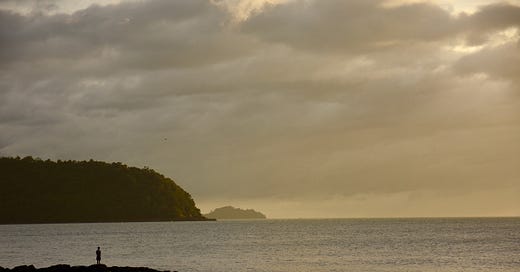





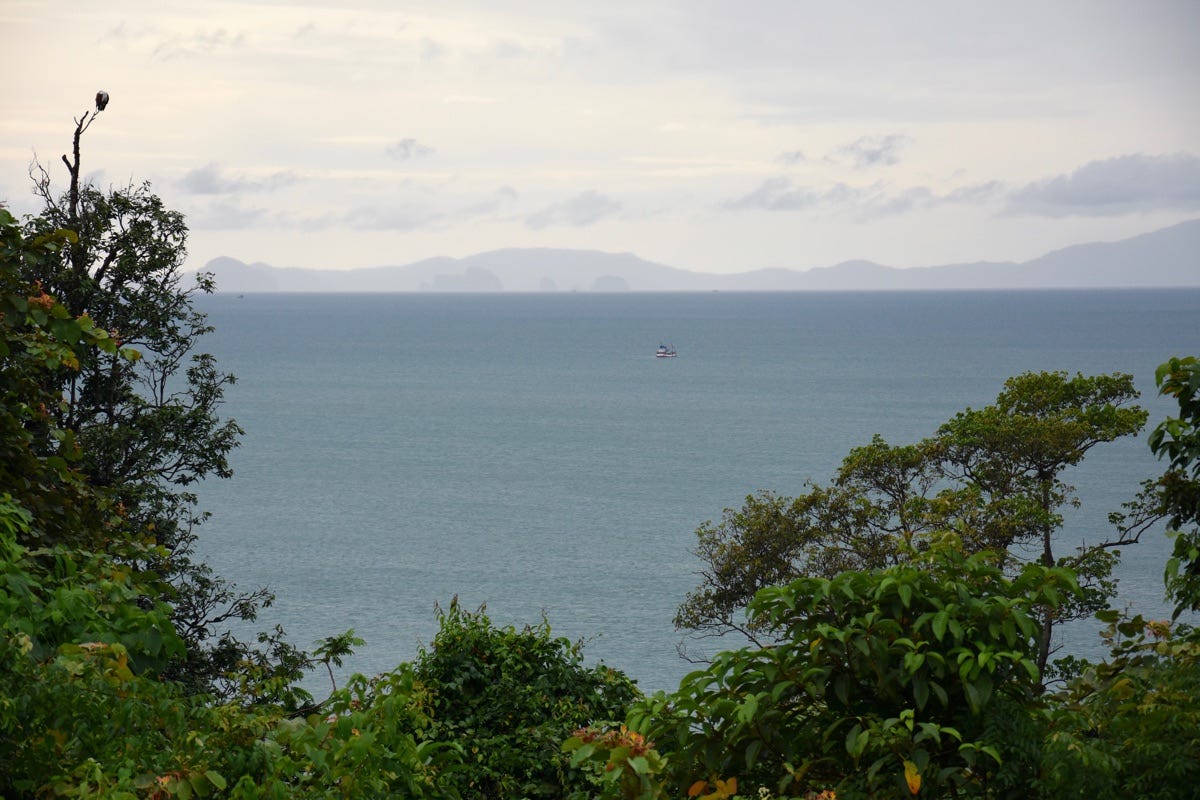


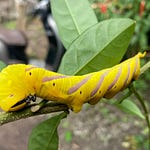
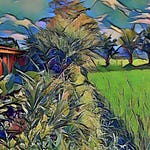

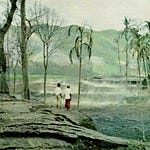
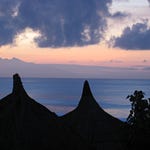
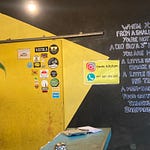
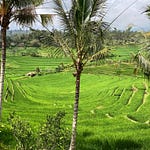

Share this post